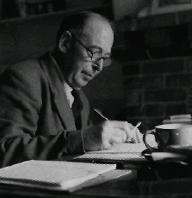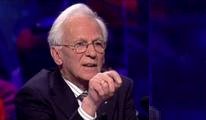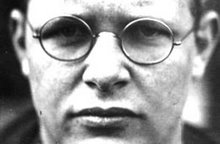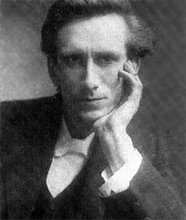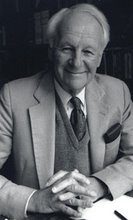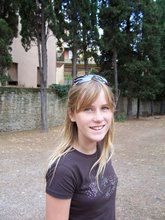Amazing Pics
Want to know what this is? Have a look here and be amazed...
Want to know what this is? Have a look here and be amazed...
Posted by
Paul
at
12:08 am
0
comments
![]()
Labels: creation, micro world, photographs, science
Let me tell you something about the first cause. In the Netherlands we have something called "domino day". Each year they invite a VIP to push the first domino stone. Without a push of one finger, the first stone will not fall. Without cause, no effect. Think about that - it's very scientific.
I selected this YouTube clip because of the very appropriate Supertramp lyrics: At night, when all the world's asleep, the questions run so deep for such a simple man.
In the beginning the Word already existed. The Word was with God, and the Word was God. He existed in the beginning with God. God created everything through him, and nothing was created except through him. The Word gave life to everything that was created, and his life brought light to everyone. The light shines in the darkness, and the darkness can never extinguish it. (John 1:1-4 NLT)
PS This blog entry is part of my reply to an anonymous comment - check this
Posted by
Paul
at
12:51 am
0
comments
![]()
 Inevitably, of course, not only those of us who do science, but all of us, have to choose the presuppositions with which we start. There are not many options – essentially just two. Either human intelligence ultimately owes its origin to mindless matter; or there is a Creator. It is strange that some people claim that it is their intelligence that leads them to prefer the first to the second.
Inevitably, of course, not only those of us who do science, but all of us, have to choose the presuppositions with which we start. There are not many options – essentially just two. Either human intelligence ultimately owes its origin to mindless matter; or there is a Creator. It is strange that some people claim that it is their intelligence that leads them to prefer the first to the second.
John Lennox, God’s Undertaker – Has Science Buried God? - Lion Hudson, Oxford 2008 - p. 179
I enjoyed reading this book, but it is not an easy read! John Lennox is a Reader (Professor) in Mathematics and Fellow of Green College, University of Oxford. He recently debated Richard Dawkins (The God Delusion - check this and listen to this debate here). If you want to find out more about the rationality of faith in a Creator God, this is a book that I can highly recommend.
Posted by
Paul
at
10:52 am
6
comments
![]()
Labels: books, faith, john lennox, quotes, science
 "Perhaps a simple illustration will help convince us that science is limited. Let us imagine that my Aunt Matilda had baked a beautiful cake and we take it along to be analyzed by a group of the world's top scientists. I, as master of ceremonies, ask them for an explanation of the cake and they go to work. The nutrition scientists will tell us about the number of calories in the cake an its nutritional effect; the biochemists will inform us about the structure of the proteins, fats etc. in the cake; the chemists, about the elements involved and their bonding; the physicists will be able to analyze the cake in terms of fundamental particles; and the mathematicians will no doubt offer us a set of elegant equations to describe the behaviour of those particles.
"Perhaps a simple illustration will help convince us that science is limited. Let us imagine that my Aunt Matilda had baked a beautiful cake and we take it along to be analyzed by a group of the world's top scientists. I, as master of ceremonies, ask them for an explanation of the cake and they go to work. The nutrition scientists will tell us about the number of calories in the cake an its nutritional effect; the biochemists will inform us about the structure of the proteins, fats etc. in the cake; the chemists, about the elements involved and their bonding; the physicists will be able to analyze the cake in terms of fundamental particles; and the mathematicians will no doubt offer us a set of elegant equations to describe the behaviour of those particles.
Now that these experts, each in terms of his or her scientific discipline have given us an exhaustive description of the cake, can we say that the cake is completely explained? We have certainly been given a description of how the cake was made and how its various constituent elements relate to each other, but suppose I now ask the assembled group of experts a final question: Why was the cake made? The grin on Aunt Matilda's face shows she knows the answer, for she made the cake, and she made it for a purpose. But all the nutrition scientists, biochemists, chemists, physicists and mathematicians in the world will not be able to answer the question - and it is no insult to their disciplines to state their incapacity to answer it. Their disciplines, which can cope with questions about the nature and structure of the cake, that is, anwering the 'how' questions, cannot answer the 'why' questions connected with the purpose for which the cake was made. In fact, the only way we shall ever get an answer is if Aunt Matilda reveals it to us. But if she does not disclose the answer to us, the plain fact is that no amount of scientific analysis will enlighten us." (From John Lennox, God's Undertaker - Has science burried God? - p. 40,41)
If you have 1 hour and 40 minutes to spare, use this time to watch this debate between Professor Richard Dawkins (best known for his book The God Delusion) and Dr. John C. Lennox (author of the before mentioned book, Reader in Mathematics at the University of Oxford and Fellow in Mathematics Philosophy of Science at Green College.)
John Lennox's book God's Undertaker is not an easy read, but I can highly recommend it to you if you are interested in science and religion.
Dr. J. Craig Venter, one of the scientists who decoded the human genome, says he is about to create the first artificial life form. I saw him on BBC World today (The Richard Dimbleby Lecture - click here) and I was impressed by what he had to say. Some of these developments are really scary and I am still thinking about what this man said about "creating life which is not forged by Darwinian evolution, but created by human intelligence".
Dr. Venter is talking about 'reading the code of life' and 'writing the code of life' and I do hope that he is willing to give some credit to the original Author of this DNA code (but that might be wishful thinking on my part). Based on this lecture it is more likely that this man's motto is: "In Science We Trust". He expects to find bio-technical solutions for many of the major problems that we are facing in the world. Dr. Venter wants to do something against the green house effect by finding a renewable alternative biological energy source that can replace the carbon based fossil energy sources; he also talks about possibilities for better medical treatment by preventing illnesses in stead of curing them. It all sounds too good to be true and I also get the impression that this man expects only good things from science and is not too concerned about the possible dangers. Don't know what to think about this yet, but it worries me to be honest. Feel free to let me know what you think by leaving a comment below.
More information here
Posted by
Paul
at
12:15 am
7
comments
![]()
Labels: ethical issues, science
This is the first part of a documentary entitled The Privileged Planet. You can watch all six parts on YouTube now (if you have some time left, it is certainly worth your while.) "It’s a remarkable coincidence that the kind of atmosphere that’s needed for complex life like ourselves does not preclude that life from observing the distant universe. It’s something that you wouldn’t expect just chance to produce. Why would the universe be such that those places that are most habitable also offer the best opportunity for scientific discovery?" Guillermo Gonzalez, author of The Privileged Planet (Please also check out the website)
“The most incomprehendable thing about the Universe is that it is comprehendable.” – Albert Einstein
“I have deep faith that the principles of the Universe will be both beautiful and simple.” – Albert Einstein
“If the whole Universe has no meaning, we should never have found out that it has no meaning.” – C.S. Lewis
.jpg)



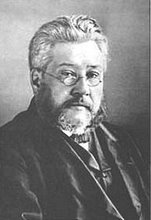



Amsterdam |
